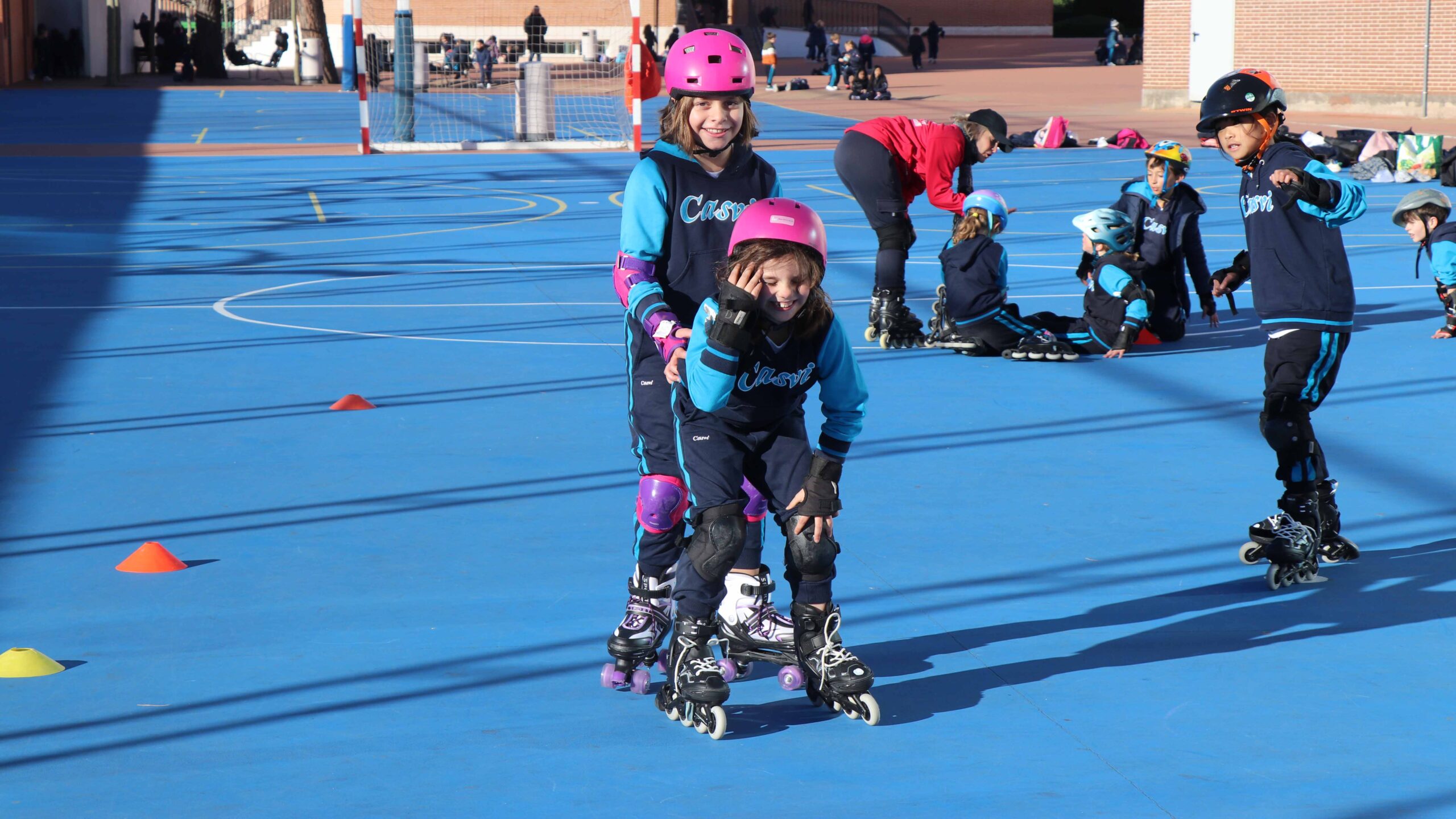Today, many children spend much of their time indoors, surrounded by screens and without sufficient contact with the natural environment. This is causing concern among parents and educators, who wonder why it is important for children to play outdoors. In this article you will find out all the answers. Also how it is encouraged, for better learning, in Casvi Villaviciosa.
CONSEQUENCES OF A CHILDHOOD WITHOUT CONTACT WITH NATURE
Children’s sedentary lifestyles are a major cause of rising rates of obesity, anxiety and social development problems. According to the World Health Organization (WHO), children need at least one hour a day of physical activity for their well-being.
Lack of outdoor play can also affect children’s creativity, motor coordination and immune system. In an increasingly digitalised world, reclaiming playtime in nature is an urgent necessity.
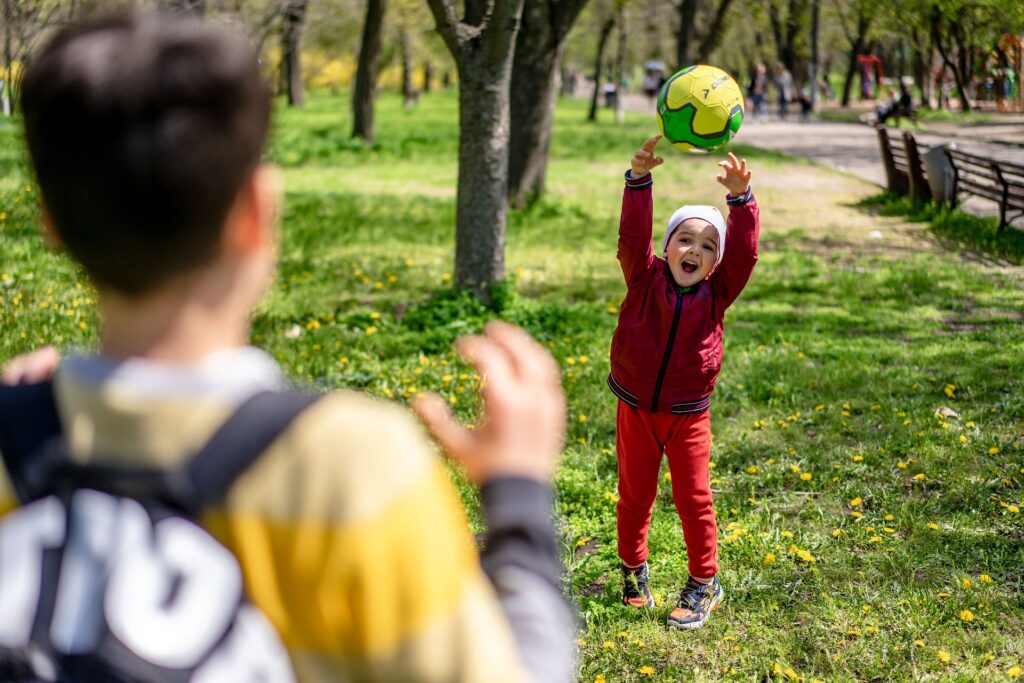
BENEFITS OF OUTDOOR PLAY
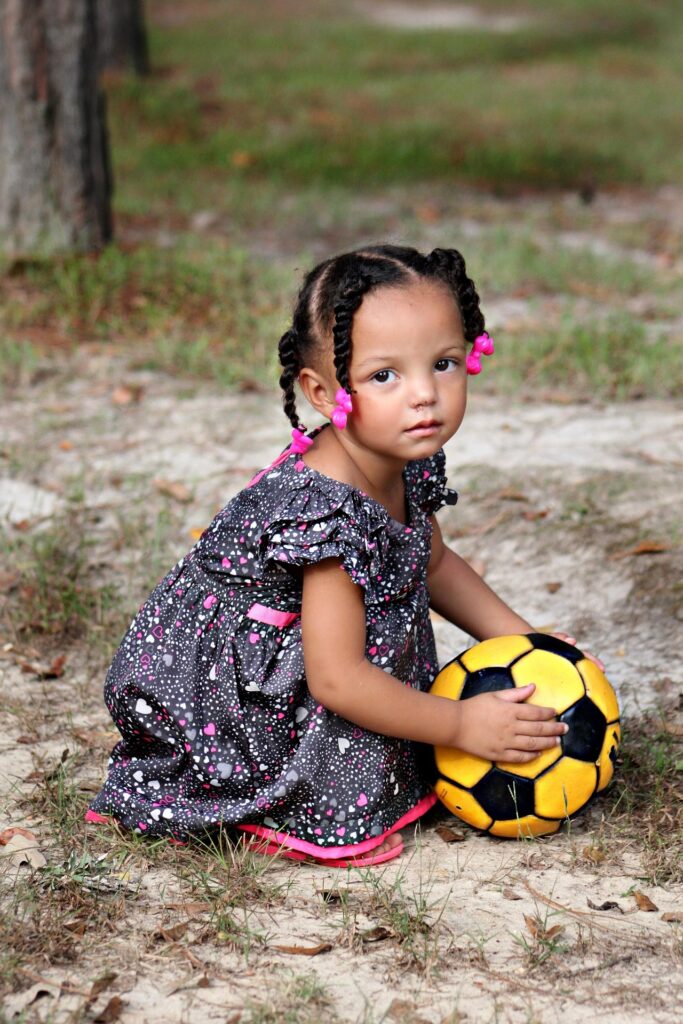
Numerous studies, such as those conducted by the American Association of Paediatrics, have shown why it is important for children to play outdoors. It is much more than just a recreational activity. It has fundamental benefits for children’s overall development:
Physical development
Running, jumping and climbing strengthen muscles, bones and balance. In addition, moderate sun exposure promotes the production of vitamin D, which is essential for bone health.
Emotional well-being
Contact with nature reduces stress and improves mood, helping emotional regulation and reducing the risk of anxiety and depression.
3.- Social skills
Playing with other children fosters teamwork, conflict resolution and empathy, key skills for their future.
Creativity and independence
Free play stimulates the imagination and allows children to develop their autonomy, promoting decision-making and problem-solving skills.
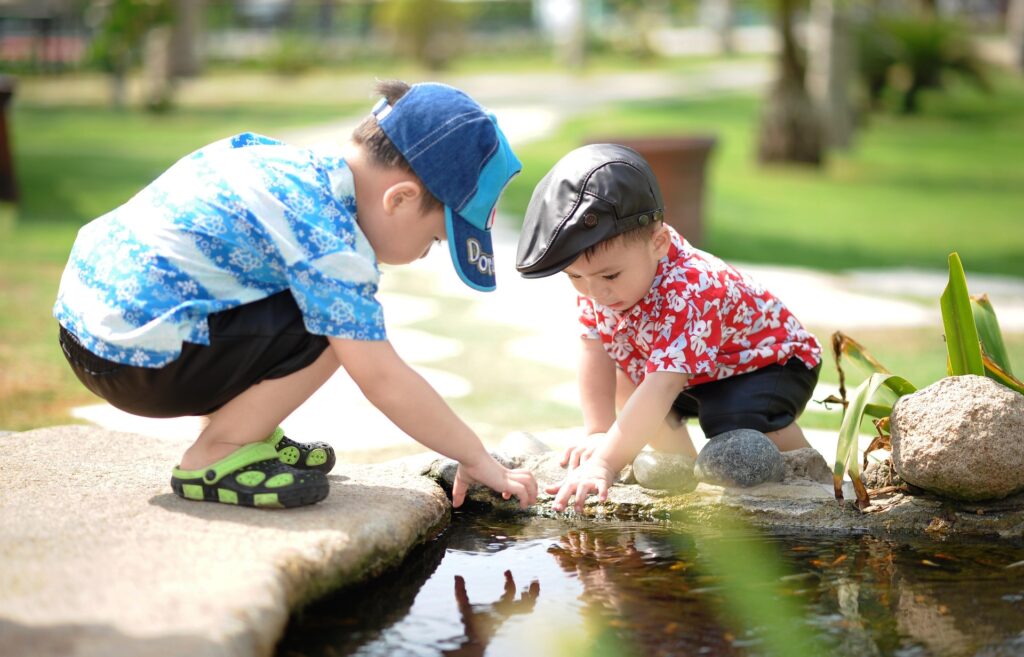
WHAT IS THE DIFFERENCE BETWEEN PLAYING OUTDOORS AND INDOORS?
Playing indoors is often more structured and limited by space. In contrast, outdoors children can explore, interact with their environment and enjoy more spontaneous and enriching play, favouring their cognitive and motor development.
WHAT PRECAUTIONS SHOULD BE TAKEN WHEN PLAYING OUTDOORS?
To ensure a safe experience, it is essential:
- Wear sunscreen and appropriate clothing according to the weather.
- Supervise children in areas with water or uneven terrain.
- Encourage respect for nature and shared spaces.
- Provide safe and age-appropriate play areas for children.
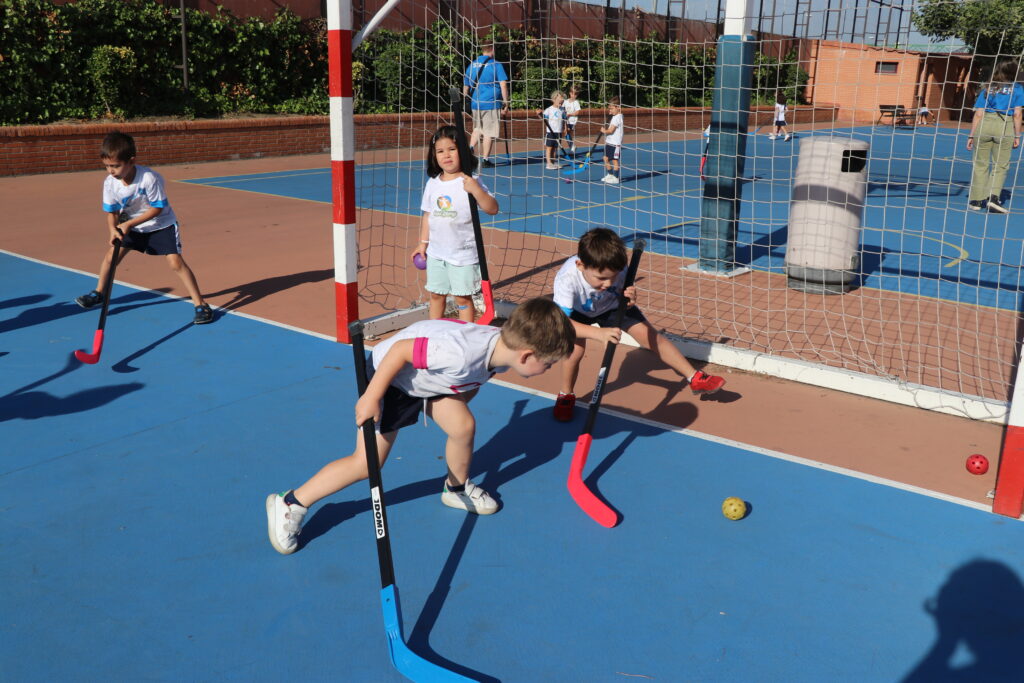
WHAT IS THE RIGHT AGE TO START PLAYING OUTDOORS?
From the earliest months, babies can benefit from contact with nature. From the age of one, they can explore more actively, always under supervision. The WHO recommends that children under five spend at least three hours a day in physical activity of varying levels of intensity.
AT CASVI VILLAVICIOSA WE ARE COMMITTED TO LEARNING OUTDOORS
At Casvi Villaviciosa International School, we know that the natural environment is a living classroom. Our educational programmes include outdoor experiences that enhance children’s physical, emotional and cognitive development.
We also have facilities designed to encourage active learning in contact with nature. Among them, the Casvi Nature Centre, in the Sierra de Gredos. This is the place where we run our immersion camps, in terms of IB methodology and languages. They take place both in spring during the school year and in the summer holidays (Casvi Nature Camp).

